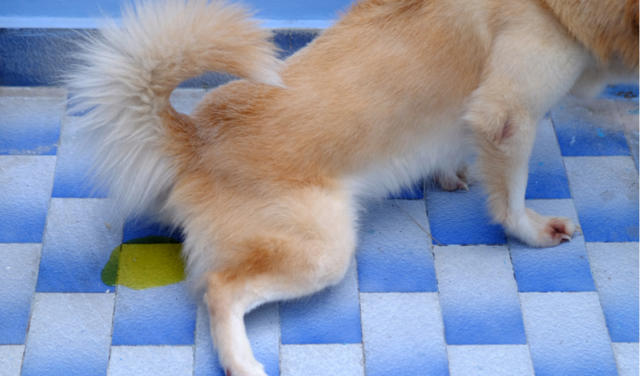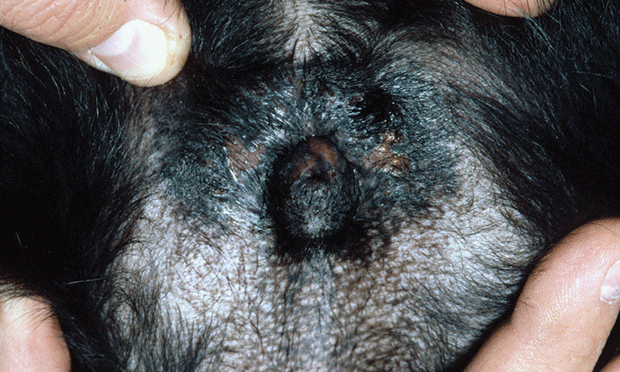In older female dogs and dogs with diabetes, urinary tract infections (UTIs) are more common. Urinary tract infections (UTIs) are more common in dogs with bladder stones. In addition, lower urinary tract illness and urinary tract infections (UTIs) are common in senior dogs of all breeds and genders, aged seven and up. A urinary tract infection (UTI) in dogs is an infection of the urinary tract.

Bacterial infections are the most common cause of UTIs in dogs. Bacterial urinary tract infections are, hands down, the most frequent infectious condition in dogs. Bacterial UTIs affect 14% of all dogs at some point in their lives. A UTI can happen to a dog at any time during their lives. When regular skin and gastrointestinal (GI) tract flora get past the urinary tract’s defenses, most dogs suffer UTIs.
Lower urinary tract infections in dogs can lead to major medical issues if left untreated. Untreated infections can cause a partial or total blockage of the urethra, causing urine production to be disrupted and dangerous quantities of waste to build up.
If your dog’s urinary symptoms are caused by a disease or cancer, the problem can grow or expand, and your dog’s symptoms may worsen or expand to include other symptoms if left untreated. If left untreated, many major illnesses, such as malignancies, can be fatal. Some of these conditions can be treated to help your dog live a longer and better life, but they are difficult to cure. Getting the appropriate diagnosis will help you figure out what’s wrong with your dog’s urinary tract.
A UTI in your dog may be caused by a number of things. UTIs are more common in female dogs than in male dogs, but they can occur in male dogs as well. UTIs are more likely in dogs that have other health issues, such as chronic kidney disease or Cushing’s disease. Your dog may be unable to retain his urine or become drowsy as a result of these illnesses. When your dog is trying to relieve him, they may moan or scream out.

Lower urinary tract disorders have a variety of reasons, including
Dirt in the bladder or urethra
Stress
Weak bladder
Trauma
Prostate disease
Congenital anomaly
Spinal cord abnormalities
Cancer
Bladder inflammation
Dogs, on the other hand, may not show any signs of a UTI at all. These indications could indicate a probable UTI in symptomatic dogs. However, your veterinarian will want to rule out a few more serious problems first. Urinary tract infections are already dangerous enough. If left unattended, they can cause lower urinary tract dysfunction, kidney or bladder stones, prostate gland inflammation, infertility, blood poisoning, and potentially kidney infection and failure.
Signs and Symptoms of Urinary tract infection
- Bloody or cloudy urine
- Straining or whimpering during urination
- Wanted to be let outside more often
- Licking around the urinary opening
- Fever
- Foul odor in the urine
- Increased amount or frequency of urination
- Lethargy
- Increased water consumption
- Vomiting
- Changes in appetite
- Weight loss
Diagnosis of Urinary Tract Infection

A visit to the veterinarian is required to diagnose lower urinary tract disorders. A physical examination will be performed by your veterinarian, which will include a check of the kidneys and bladder. They will almost certainly run a urinalysis as well. Depending on their findings, they may need to perform a urine culture, blood tests, ultrasound, or radiography. These tests can help your veterinarian identify whether your dog’s urinary tract issues are caused by a UTI or if they are caused by one of the underlying conditions indicated above, such as stones, malignancies, or tumors.
Treatment
If the vet finds that your dog’s urinary tract problems are caused by an underlying medical condition, the underlying condition will be treated first.
Antibiotics are the most common treatment for UTIs in dogs, and the doctor may also prescribe pain medicine if the UTI is particularly painful. Even if your dog appears to be feeling better, make sure you give them all of the medication to ensure the illness is cleared and to help avoid viral replication.

